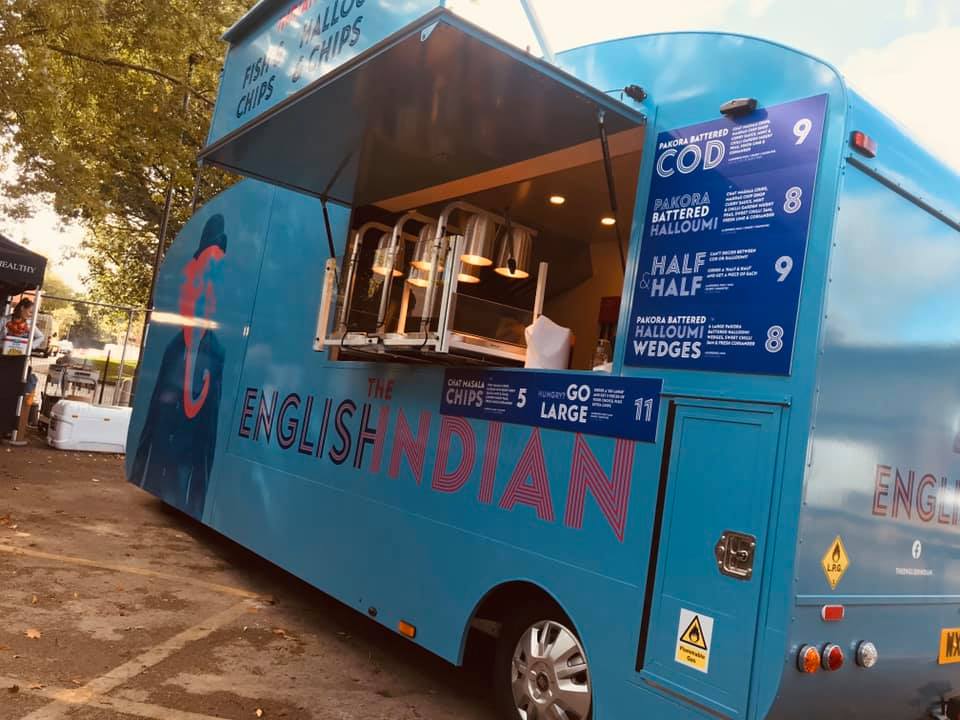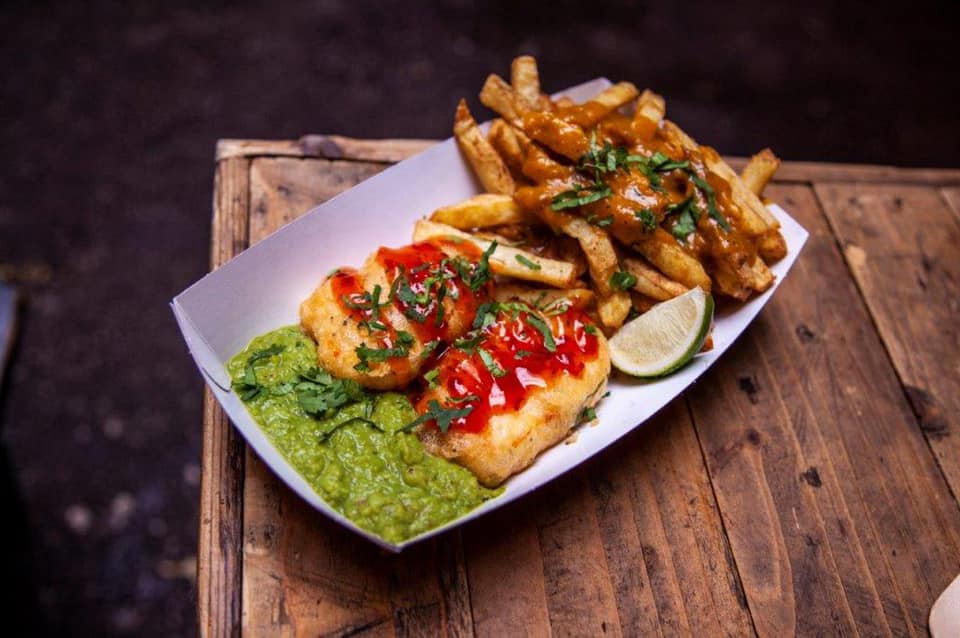The Genius Behind The English Indian
Posted by Emily on 27th Jan 2021 Reading Time:
Birmingham-based street food vendor The English Indian puts an Asian twist on a very British classic
From one pop-up gazebo working festivals and food halls in and around Birmingham five years ago, The English Indian now boasts three food stalls as well as a mobile truck catering at major events across the UK, including Glastonbury where last year it served 5,000 people over five days, plus weddings and corporate days.
Although the business started out selling more traditional Indian street food, inspired by James’s travels to the country, it’s the truck’s new offering that is securing the bookings.
Fresh pakora battered cod goujons - goujons cook quicker than fillets, key when you’ve only got a small window in which to get your food out - chaat masala seasoned chips, mint and chilly mushy peas and an authentic Indian curry sauce are served on a tray with a wedge of lime and garnished with fresh coriander.
The east meets west fusion, which is all made fresh from scratch, offers something different yet familiar, an important combination if you’re going to succeed in the highly competitive street food game. James explains: “What we found with street food is that you get such a small amount of time to get people’s attention. If they read your menu and get it straight away, you’ve got a much higher chance of getting that customer to eat it.
“I still don’t know how exactly how we came up with fish and chips but one thing I do love is fish and I love pakora, which is fish cooked in gram flour batter. I was thinking how else can we use the name English Indian when I thought about doing a twist on fish and chips. Everyone knows what fish and chips is so if I did fish and chips Indian style, 99% of people love Indian food so it should work and it has. Overnight our business quadrupled.”
Although pakora battered cod and its accompaniments have given The English Indian an edge, it gave rise initially to a problem that Ceres helped solve.
“We were making the batter ourselves from gram flour as that’s how you make pakora batter, but we found it was only staying crispy for 20 seconds,” explains James. “If you’re making a pakora batter, that’s fine, it doesn’t stay crispy very long, that’s the kind of batter it is. But if you’re cooking fish and chips, the customer expects a crispy batter.”
Trying Ceres gluten free batter, which is made predominately from gram flour, James comments: “All we did was add our own little bit of magic to the batter and, hey presto, it was staying really nice and crispy.”
Before using Ceres, James was making the batter himself, which involved several different ingredients. James comments. “Ceres has helped us on two accounts. One, we’ve now resolved the problem of not having crispy batter and, two, it’s saved us time because it’s ready-made. We buy the tubs and it’s the perfect amount to make up each time, which stops the waste as well.”
With demand for street food showing no sign of letting up, James has just pressed the button on his first franchise, a food van serving south east London, and there are also plans to look at static sites.
James comments: “We’ve found with street food it’s about keeping it simple, really really simple. We’re not a fish and chip shop business where we’ll offer a pie, a saveloy, chicken wings or kebab. We stick to fish and chips but with an Indian flavour. And it’s working.”



